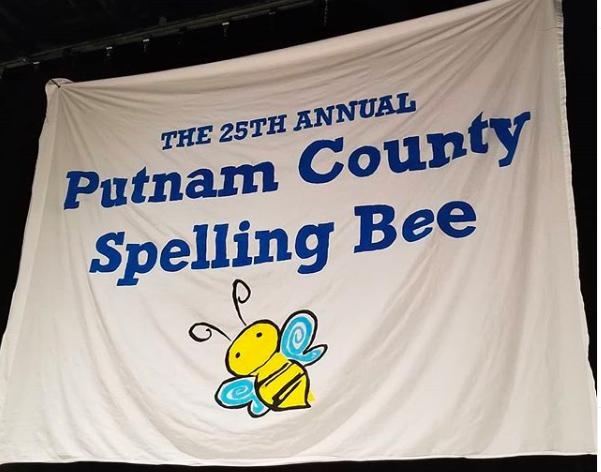This past weekend, InterMission Theatre gave three entirely sold-out performances of “The 25th Annual Putnam County Spelling Bee,” a comedic musical which is wholly set at a regional spelling bee.
While I may be biased as a former spelling bee champion myself (maraschino cherries, anyone?), this turnout was warranted.
IMT, a student organization dedicated to producing theatrical productions beyond offerings in the University of Wisconsin’s Department of Theatre and Drama, has produced musical cabarets for the past several years, but “Spelling Bee” is only their second fully-staged, licensed musical following 2018’s “Urinetown.”
Inherent in its mission, IMT allows for UW’s theatrically-inclined students to try new aspects of theatre which they do not normally have a chance to try. For a few examples, “Urinetown”’s lead actor, graduate student Sam Vinitsky, served as “Spelling Bee”’s music director, and junior Bryanna Plaisir, who portrayed The Witch in University Opera’s “Into The Woods” last spring, designed the show’s lighting plot.
This opportunity, of course, allows many musical talents at UW to shine, with the ensemble-driven narrative giving every performer their moment in the spotlight. This spread also allowed each character enough time to receive just enough development. The intersection of these characters and situations make for a wide variety of musical pieces. Some are hilarious, from Chip Tolentino’s (Gabe Hanna) whine about his “Unfortunate Erection” to William Barfee’s (Tanner Zocher) explanation of his “Magic Foot,” which he uses to help him spell his words. On the other hand, Olive Ostrosky’s (Caroline Hansen) “My Friend the Dictionary” and “The I Love You Song” hit near tear-jerking notes.
The intimate Hemsley Theatre, with seating for around 100 audience members, made the performance’s success a possibility. I often wonder how this particular show was able to run for years at a Broadway theater, as its script and general development lends itself to a small performance space. Audience participation is chief among these reasons. Four participants for the bee are selected from the audience, though all are eliminated once “easy” words like “yeet” are spelled and done for.
Available amplification was one limitation of the production, as performers were unamplified unless they possessed either the pronouncer’s microphone or the upright mic used for the spellers. Despite this, most vocal lines could be deciphered, and the layers of amplified and unamplified lines may have actually assisted some numbers like “Woe is Me” and “The I Love You Song.”
“Spelling Bee” provided yet another opportunity to see the work of UW’s emerging artists, and was assuredly an s-u-c-c-e-s-s.


